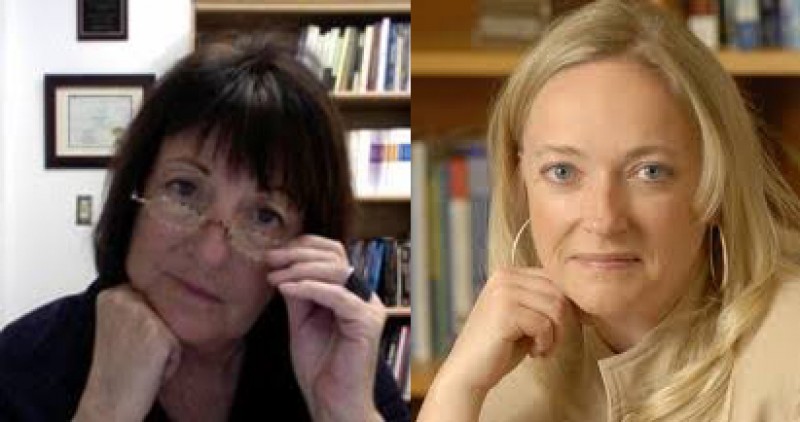KLI Colloquia are invited research talks of about an hour followed by 30 min discussion. The talks are held in English, open to the public, and offered in hybrid format.
Join via Zoom:
https://us02web.zoom.us/j/5881861923?omn=85945744831
Meeting ID: 588 186 1923
Spring-Summer 2026 KLI Colloquium Series
12 March 2026 (Thurs) 3-4:30 PM CET
What Is Biological Modality, and What Has It Got to Do With Psychology?
Carrie Figdor (University of Iowa)
26 March 2026 (Thurs) 3-4:30 PM CET
The Science of an Evolutionary Transition in Humans
Tim Waring (University of Maine)
9 April 2026 (Thurs) 3-4:30 PM CET
Hierarchies and Power in Primatology and Their Populist Appropriation
Rebekka Hufendiek (Ulm University)
16 April 2026 (Thurs) 3-4:30 PM CET
A Metaphysics for Dialectical Biology
Denis Walsh (University of Toronto)
30 April 2026 (Thurs) 3-4:30 PM CET
What's in a Trait? Reconceptualizing Neurodevelopmental Timing by Seizing Insights From Philosophy
Isabella Sarto-Jackson (KLI)
7 May 2026 (Thurs) 3-4:30 PM CET
The Evolutionary Trajectory of Human Hippocampal-Cortical Interactions
Daniel Reznik (Max Planck Society)
21 May 2026 (Thurs) 3-4:30 PM CET
Why Directionality Emerged in Multicellular Differentiation
Somya Mani (KLI)
28 May 2026 (Thurs) 3-4:30 PM CET
The Interplay of Tissue Mechanics and Gene Regulatory Networks in the Evolution of Morphogenesis
James DiFrisco (Francis Crick Institute)
11 June 2026 (Thurs) 3-4:30 PM CET
Brave Genomes: Genome Plasticity in the Face of Environmental Challenge
Silvia Bulgheresi (University of Vienna)
25 June 2026 (Thurs) 3-4:30 PM CET
Anne LeMaitre (KLI)
KLI Colloquia 2014 – 2026
Event Details

Topic description / abstract:
In this talk we address the question raised by the title through a discussion of the aims of our recently published Routledge Handbook of Feminist Philosophy of Science. We first clarify how we have understood both feminism and philosophy of science and in what ways we see the intersection of these as having contributed to a better understanding of both. We illustrate this through looking at several of the chapters indicating how they support our motives for exploring feminist philosophy of science. Specifically, we consider the value of rewriting the history of the philosophy of science so the participation of women is acknowledged, several ways in which bias both in what is studied and how it is studied can limit our understanding of the world, the importance of diversity, and the equitable distribution of the benefits and burdens of the products of science.
Biographical notes:
Sharon Crasnow is a Distinguished Professor of Philosophy Emerita, Norco College and an Associate Researcher at the Centre for Humanities Engaging Science and Society (CHESS) at Durham University, Durham, UK. She was a visiting fellow at the Center for Philosophy of Science, University of Pittsburgh in spring 2017 and a Visiting Professor at the LSE Gender Studies Institute in spring 2019. She has published in Philosophy of Science, Hypatia, Philosophy of Social Science, and Synthese. She is co-editor with Anita M. Superson of Out from the Shadows: Analytic Feminist Contributions to Traditional Philosophy (OUP 2012) She is also co-editor (with Joanne Waugh) of the Lexington book series Feminist Strategies and (with Kristen Intemann) of the Routledge Handbook of Feminist Philosophy of Science.
Kristen Intemann is a Professor of Philosophy in the Department of History & Philosophy and Director for the Center of Science, Technology, Ethics & Society at Montana State University. Her research focuses on objectivity and diversity in STEM, as well as ways in which values operate in science, science communication, and public engagement. She has published numerous articles in both philosophy and science journals and is the co-author of The Fight Against Doubt: How to Bridge the Gap Between Scientists and the Public (with Inmaculada de Melo-Martin, Oxford University Press, 2018). She co-edited the Routledge Handbook of Feminist Philosophy of Science with Sharon Crasnow (2020) and they are currently working on a co-authored book that examines the intersections between gender, science, and knowledge.


